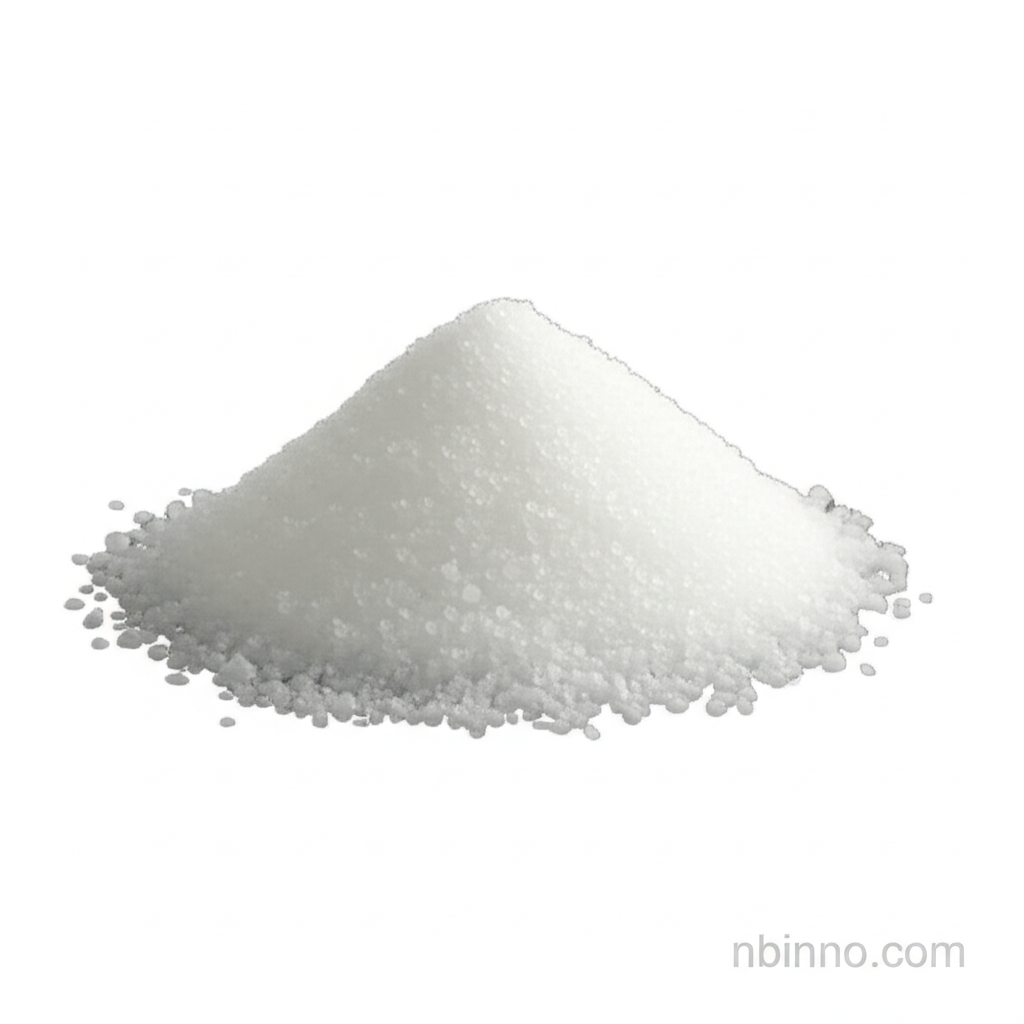High Purity Diethylamine Hydrochloride: Synthesis, Properties, and Chemical Applications
Explore the essential chemical intermediate for your organic synthesis needs. Discover its properties and applications.
Get a Quote & SampleProduct Core Value

Diethylamine Hydrochloride
Diethylamine Hydrochloride (CAS 660-68-4) is a vital chemical intermediate primarily utilized in organic synthesis. It is characterized by its high purity, exceeding 99.0%, and presents as a white crystalline solid. Its molecular formula is C4H12ClN, with a molecular weight of 109.6. Proper storage in cool, dry, ventilated conditions, protected from light, ensures its stability and efficacy for various chemical manufacturing processes.
- Discover efficient diethylamine hydrochloride synthesis routes for improved yields in your chemical production.
- Source high-quality diethylamine hydrochloride for sale and ensure the integrity of your organic synthesis projects.
- Understand the critical chemical applications of diethylamine hydrochloride in advanced chemical manufacturing.
- Learn about the importance of diethylamine hydrochloride purity analysis for consistent and reliable results.
Advantages of Diethylamine Hydrochloride
High Purity
Achieve superior reaction outcomes with Diethylamine Hydrochloride boasting >99.0% purity, crucial for sensitive organic synthesis.
Versatile Intermediate
Serve as a fundamental building block in numerous chemical reactions, facilitating the creation of complex organic molecules.
Stable Storage
Maintain product integrity with recommended diethylamine hydrochloride storage guidelines, ensuring long-term usability.
Key Applications
Organic Synthesis
Facilitate complex chemical transformations and the creation of diverse organic compounds through its role as a key synthesis reagent.
Chemical Intermediates
Act as a crucial building block in the multi-step synthesis of various fine chemicals and specialty compounds.
Laboratory Research
Support fundamental research and development in chemistry, enabling exploration of new reaction pathways and molecular structures.
Pharmaceutical Synthesis
Contribute to the development and production of pharmaceutical ingredients by serving as a precursor in drug synthesis pathways.
